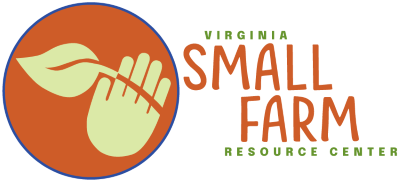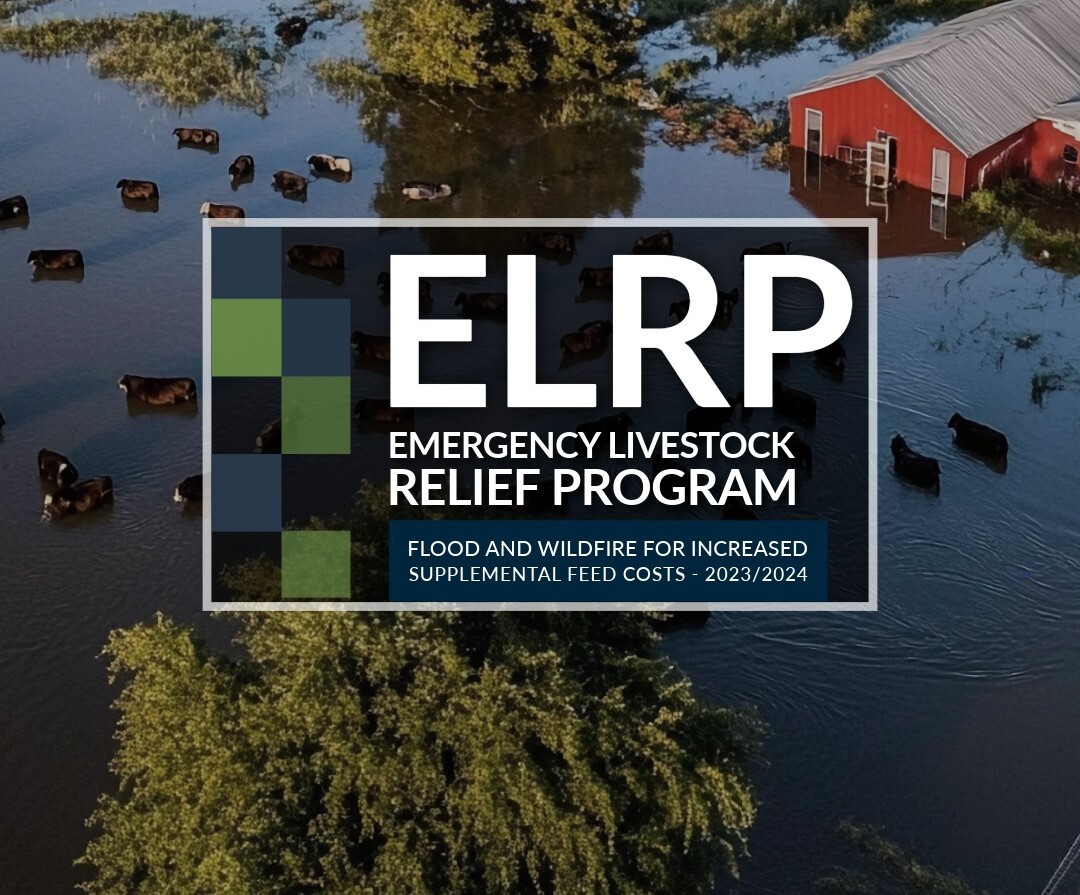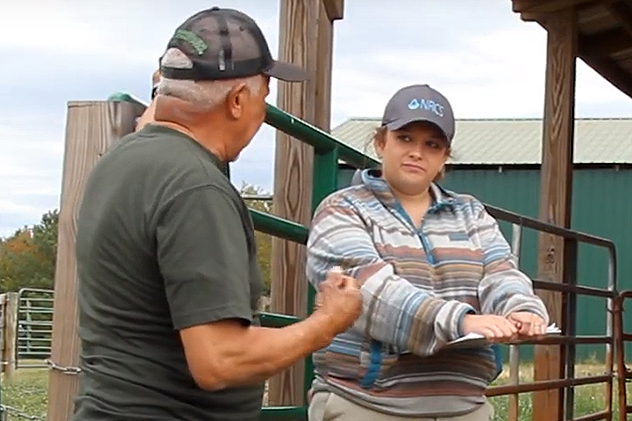Introducing the NASDA GAP Toolkit
The USDA’s Agricultural Marketing Service (AMS) and the National Association of State Departments of Agriculture Foundation (NASDA) have created a Good Agricultural Practices (GAP) grower toolkit and corresponding website to increase underserved farmers’ access to new and existing markets and USDA food safety certification programs.

The GAP toolkit includes new, user-friendly educational resources with an emphasis on GroupGAP, a USDA farm food safety program that provides the specialty crops industry with opportunities to supply and buy fruits, vegetables and related products certified as being produced using Good Agricultural Practices. The USDA’s GAP audit program is offered to the fruit and vegetable industry to verify an operation’s efforts to minimize the risk of contamination of fresh fruits, vegetables, and nuts by microbial pathogens. The new website and toolkit detail specifics of the GAP programs, their benefits, expected costs, misconceptions, the audit process, and relevant resources.
The GAP toolkit is now available online at www.nasda.org/gap-overview and in PDFform for printing and sharing in future trainings. The resources can also be found on the AMS Local & Regional Food System webpage under NASDA GAP Toolkit. Arecorded train-the-trainer webinar is also now available for state departments of agriculture, cooperative extension, and non-governmental organizations to provide the new material to growers and other stakeholders.
Explore the NASDA GAP Website
USDA Invests $10M to Support Community Food Projects

The U.S. Department of Agriculture’s (USDA) National Institute of Food and Agriculture (NIFA) announced last month an investment of nearly $10 million through the Community Food Projects Competitive Grants Program (CFPCGP). This funding, made possible through the American Rescue Plan Act, bolsters USDA’s food and nutrition security efforts by promoting the self-reliance of communities in providing for the unique food needs of their community members.
Community food projects, powered by a network of stakeholders from across the food system, support small to medium farmers, producers, and processors in urban, rural, tribal and insular areas. The program provides communities a voice in food system decisions and supports local food markets to fully benefit the community, increase food and nutrition security and stimulate local economies.
Read more about the 29 Community Foods Projects that funds will be invested into from fiscal year 2022 Request for Application submissions, and learn more about the program on the CFPCGP page.
Read the CFPCGP Press Release
Increasing Food Access Through Farmers Market Implementation & Education: 1890 University and Farmers Market Coalition Partnership
 The U.S. Department of Agriculture’s (USDA) Agricultural Marketing Service (AMS) and the Farmers Market Coalition (FMC) have announced their cooperative agreement partnership that supports the establishment of farmers markets at 1890 land-grant universities. The U.S. Department of Agriculture’s (USDA) Agricultural Marketing Service (AMS) and the Farmers Market Coalition (FMC) have announced their cooperative agreement partnership that supports the establishment of farmers markets at 1890 land-grant universities.
The first phase of this project includes partnering with Southern University in Baton Rouge, La., Tennessee State University in Nashville, Tenn., and Virginia State University in Petersburg, Va., to develop and pilot on-campus farmers markets. According to the press release from the Farmers Market Coalition in December, this pilot project consists of two phases. The first phase will focus on education, data gathering, design, and operating procedures, bringing together the universities and partners in a community of practice. The second phase will use the information gathered to prototype and implement market activities with a goal of operating small farmers markets on or near their campuses. To learn more about the Farmers Market Coalition and their work, visitwww.farmersmarketcoalition.org To learn more about land-grant institutions, check out the 1890 Land-Grant Institutions National Program and the 1994 Tribal Land-Grant Colleges and Universities Program. Read the FMC Press Release
|
RMA Workshops on Crop Insurance for Specialty Crop, Organic Producers

USDA’s Risk Management Agency (RMA) has conducted a series of workshops for agricultural producers to learn about the latest updates and improvements to the Whole-Farm Revenue Protection (WFRP) and the Micro Farm insurance options. These workshops are especially important to specialty crop, organic, urban, and direct-market producers and RMA subject matter experts will provide an in-depth look at these policies.
The next in-person event will be held on Feb. 25 at the Michigan Family Farms Conference. Visit the RMA website for information on how to register and to view virtual recordings of past sessions. Any questions about Whole Farm Revenue Protection or Micro Farm programs can be emailed to wfrp.rma@usda.gov.
Learn More
Open Opportunities
Reminder: Complete The 2022 Ag Census!

The 2022 Census of Agriculture is now underway. Conducted every five years, the census is the only source of comprehensive and impartial ag data for U.S. counties and states. For America’s ag producers, it is your opportunity to tell your story and make a difference in the future of agriculture. Watch this video to hear Secretary Tom Vilsack’s message on the value and impact of the ag census.
To complete the survey, visit the Census of Agriculture’s website, or fill out the form by mail, and help spread the word by using census Partner Tools. There, you can access frequently asked questions, explore past and current ag census data, download the wide variety of tools to help spread the word about the upcoming ag census, and more.
Registration Open for the Agricultural Outlook Forum

USDA’s 99th annual Agricultural Outlook Forum (AOF), will be held in-person at the Crystal City Gateway Marriott in Arlington, Va. on Feb. 23-24, 2023, and all sessions will be livestreamed on a virtual platform. Check out their Program At A Glance and Session Details for more information. Sign up to attend in person or virtually through this registration link.
You can also follow the conversation at #AgOutlook23 on USDA’s Twitter, Instagram and
 Subscribe to Farm to School E-Letter: The Dirt Subscribe to Farm to School E-Letter: The Dirt
Want to stay rooted in all things Farm to School?Subscribe to the USDA Farm to School Program’s monthly e-Letter, The Dirt. The e-letter features success stories from current Farm to School Program grantees, as well as farm to school resources, events, research insights, and funding opportunities. Visit the Farm to School Program Website to learn more about the USDA Farm to School Grant Program, Farm to School Census, and technical assistance and training. Subscribe to The Dirt here! |
Current Funding Available
RD’s Intermediary Lending Program
Application Due Date: Quarterly (December 31, March 31, June 30)
The Intermediary Lending Program provides 1 percent low-interest loans to local lenders or “intermediaries” that re-lend to businesses to improve economic conditions and create jobs in rural communities. USDA is offering priority points to projects that advance key priorities under the Biden-Harris Administration to help communities recover from the COVID-19 pandemic, advance equity, and combat climate change. Learn more about RD’s Intermediary Lending Program on their webpage.
RD’s Food Supply Chain Guaranteed Loan Program
Application Due Date: Applications accepted until funds are exhausted
The USDA RD Food Supply Chain Guaranteed Loan Program is authorized by the American Rescue Plan. This program guarantees loans of up to $40 million for qualified lenders to finance food systems projects, specifically for the start-up or expansion of activities in the middle of the food supply chain. The program will support new investments in infrastructure for food aggregation, processing, manufacturing, storage, transportation, wholesaling, and distribution. Learn more on the Food Supply Chain Guaranteed Loan program website.
Agriculture Innovation Center Grant Program Application
Due Date: March 6, 2023
The purpose of this program is to establish and operate Agriculture Innovation Centers that provide technical and business development assistance to agricultural producers seeking to engage in developing and marketing value-added agricultural products. For more information, visit the Rural Development page on the Agriculture Innovation Center Program.
TEFAP Reach and Resiliency Grant Application
Due Date: March 6, 2023
As the country rebounds from the pandemic, USDA is ensuring that TEFAP’s collective reach spreads to all eligible individuals in need. The key objective of TEFAP Reach and Resiliency grants is to “Expand TEFAP’s reach into remote, rural, tribal, and/or low-income areas that are underserved by the program”. Visit the Grants.gov page on the TEFAP Reach and Resiliency Grant for details.



